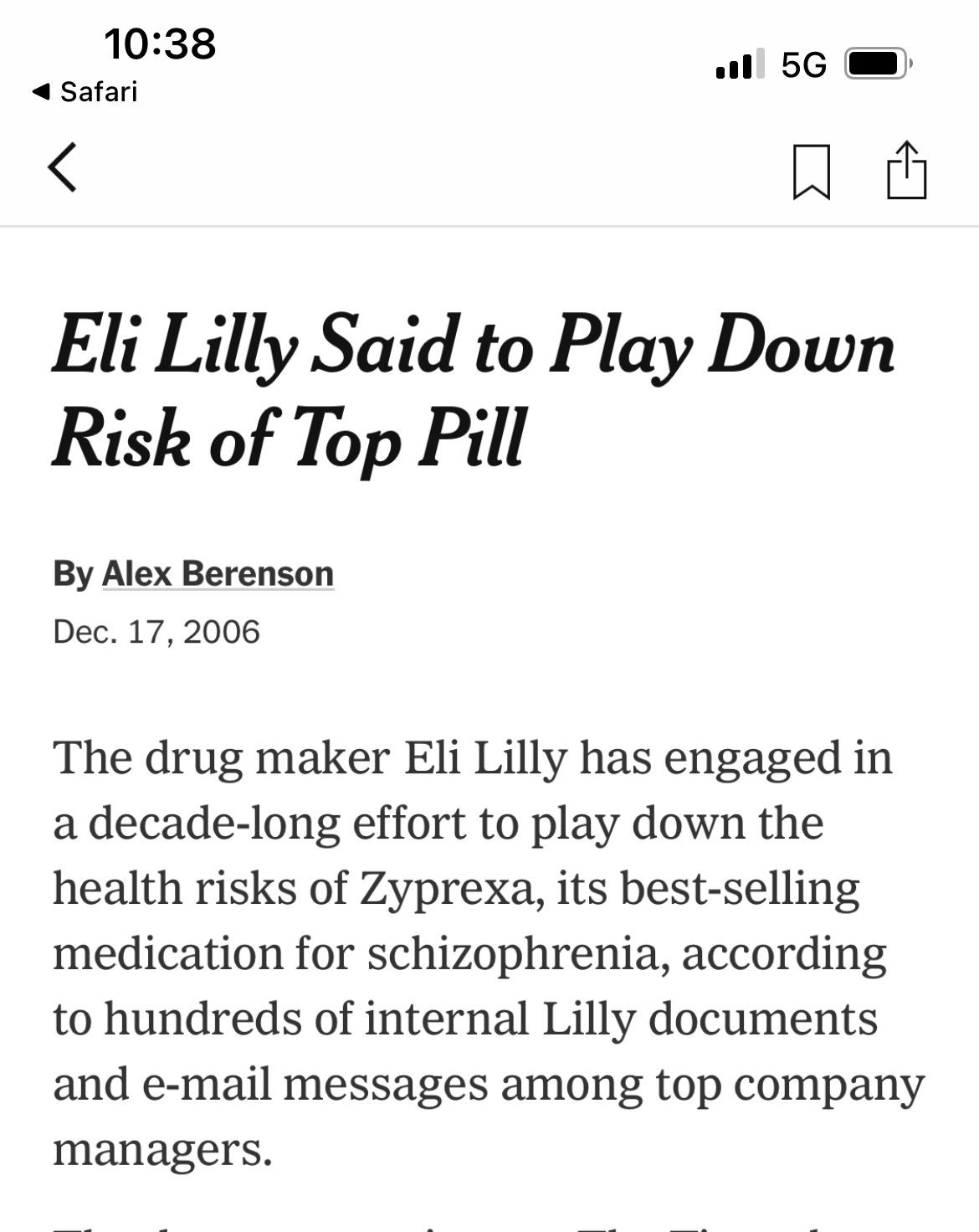What has HAPPENED to reporters?
They don't have even a basic understanding of their jobs anymore
When I worked at the New York Times, I don’t think I ever wrote a Spiderman story.
What’s a Spiderman story?
That now-famous meme:
A Spiderman story is any investigative piece where the side the reporter is attacking can say EXACTLY the same things about the other side.
You’re misinforming!
No, you!
No, you!
No, you!
… ad infinitum.
I wrote lots of investigative pieces (mostly about drug and other medical companies) in the 10-plus years I worked for the New York Times; I’m proud of them. Some are still quoted, more than a decade after I left.
Here’s how I viewed my job: finding, investigating, and reporting on criminal/quasi-criminal and concealed/quasi-concealed corporate behavior.
All those words matter. Executives usually try to avoid breaking the law overtly. They don’t like prison. Prison isn’t fun. They prefer golf. (I’m not entirely sure why.)
Of course, there are exceptions. A few executives, like Elizabeth Holmes, are frauds basically from the jump. Other will cross the line when the walls are cracking and they get desperate. But generally, well-lawyered companies prefer to look for loopholes.
If paying a physician directly to prescribe your drug is illegal, offer volume “rebates” for drugs administered directly by physicians.
Or create a “naturalistic” clinical trial - where the physician receives hundreds of dollars for filling out a one-page form every time she enrolls a patient.
Or offer a free, all-expenses paid continuing education seminar for physicians about “new treatments” at a ski area, and keep the schedule light. And hire “key opinion leaders” - other physicians - to give the seminars - you can pay them, they’re working. And pay those KOLs to “consult” with your marketing division about the best ways to promote your drug.
You get the idea. When the product is a pill that costs pennies to make and can be sold for dollars (or sometimes hundreds of dollars), there’s LOTS of money sloshing around. You just need to put it to work.
So criminal OR quasi-criminal.
And concealed OR quasi-concealed. Obviously, companies will not go out of their way to describe clearly illegal behavior - cash in bags, et cetera. Getting at that usually requires whistleblowers (another topic) and internal documents.
But public companies have strict disclosure requirements. And pharma companies have to provide data to the Food and Drug Administration both before and after their products are approved and register their human clinical trials prospectively with the National Institutes of Health (they didn’t always). And lawsuits and the discovery process can also be great sources, which is yet another reason the vaccine immunity is so problematic.
So the truth - some version of the truth - is out there. Getting to it is often an iterative process - write a story, people talk, more documents come out, write another story, new evidence arrives in your email, et cetera. Bethany McLean did this brilliantly with Enron 20 years ago.
But please - pretty please - note two facts about the process I am describing.
First, it is a process of finding HIDDEN facts and data.
Second, Spiderman is nowhere near it. When Eli Lilly tried to hide the dangers of its drug Zyprexa from doctors treating people with schizophrenia - among the most vulnerable people in the world - nobody said the people with schizophrenia were hiding anything from Eli Lilly.
That’s investigative reporting. Bringing hidden facts to light. Protecting people who cannot protect themselves from companies with vast resources - armies of lawyers and marketers.
What Elizabeth Dwoskin (who, by the way, did not include me in her Washington Post story today - either she or her editors must have realized how terrible that would look after what I posted late last night) - is nothing of the sort. It is opinion and argument, pure and simple.
Why?
NOTHING ABOUT WHAT I AM DOING IS HIDDEN. The opposite: I present my findings every day in as close to real time as possible. And I have no hidden financial conflicts of interest.
AND READERS PROVIDE THE VAST MAJORITY OF MY INCOME. Either directly through Substack and Amazon or indirectly through publishers like Regnery and Simon & Schuster - who offer me advances in the hope they will sell enough books to recoup them, and pay me a portion of the money they make after those advances have earned out.
Investigative reporting would be: discovering that I’m lying about this and some bad actor is funding me. (Who? I even don’t know - the Russian government, maybe?) Which would be impossible, because it’s not true.
Investigative reporting would be: discovering that I have been making up sources or lying about what the documents I present say. Also impossible, because it’s not true.
Instead these people who call themselves reporters basically say, what you are saying is wrong - and not merely wrong, misinformation - because the Centers for Disease Control says so.
What?
I say again, WHAT?
You’re not Spiderman, I’m Spiderman!
I am reporting and have reported that public health authorities have vastly overestimated the efficacy of the vaccines for more than year and are presenting their data in a way that is effectively false. To say the CDC disagrees with me is not to shoot me down; it is to confirm what I am saying.
And it is not reporting, it is stenography of government institutions.
If these people had been covering Robert McNamara we’d still be in Vietnam.






Alex , please highlight 🇨🇦 Freedom Convoy 2022! There are 500K people or more and 50K trucks descending on Ottawa sat Jan 29
Most of the young reporters have the same issues that infects their entire generation. They put way too much trust in the government agencies, and don't know how to think critically. There's a serious shortage of common sense as well.